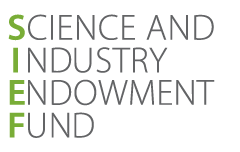Vaximiser
Industrial scale production of enhanced vaccine eggs for commercial influenza vaccine production trials
The current COVID and previous influenza pandemics have highlighted the critical need for effective and efficient approaches to vaccine production and supply. Influenza is an acute viral infection that occurs worldwide, is easily spread and has a high cost to society. Infection can have serious effects on the young, elderly, pregnant women and persons with chronic diseases or weakened immune systems. To protect those at risk, the solution is vaccination, however, producing enough doses of vaccine in a cost-effective manner can be challenging. Additionally, vaccine manufacturers face considerable burdens such as increasing demand and speed of supply, especially in the face of an outbreak. Furthermore, pricing pressures and escalating costs, as well as logistic and supply chain breaks, place heavy strains on manufacturing systems.
Vaccine production in eggs is a tried and true method having been used for nearly 100 years. Influenza vaccines, as well as others such as Yellow Fever and Newcastle Disease Virus, are grown in fertilised eggs and it can take a number of eggs to produce a single dose of vaccine. For Influenza, 500 million doses of vaccine are produced every year, this has dramatic cost implications across the whole vaccine production supply chain. If it can be improved it would be a great benefit to influenza and veterinary vaccine manufacture, especially in low- and middle-income countries. A more efficient production process would support rapid responsiveness, greater coverage and a lessening of the costs to society with reduced infection rates. Production of a high yield vaccine egg could help to current egg-based producers provide significantly more vaccine in less time and increase value for vaccine companies by improving production efficiency.
Critical to industry adoption and commercialisation of an egg optimised to increase vaccine production is the validation and adaptation of this technology to manufacturing conditions. We have developed a platform that uses clever biology to help investigate eggs that can be specifically developed for their use in vaccine production. The application of this platform will help to inform industry and facilitate rational decisions on the use of eggs for enhanced capacity for vaccine development.
For further information please contact:
Dr Andrew Bean, CSIRO
